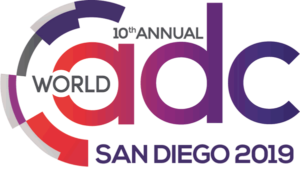
The Dish’s Weekly Biotechnology News Wrap Up – July 26, 2019
This week’s headlines include: Samsung Bioepis Humira biosimilar wins FDA approval, FDA Grants Orphan Drug Designation to CD123-Targeted CAR T-cell Therapy for AML, Pall to provide ‘A-Z of single-use tech’ in Servier deal, Sanofi signs U.S. rights deal with Roche for flu treatment Tamiflu, and Editing out muscular dystrophy with CRISPR independent of the gene mutation.
Podcasts:
Check out our podcast channel. We have over 30 great podcasts covering drug discovery, stem cell culture, upstream and downstream biomanufacturing and more! Click below to download from iTunes or Google play:
![]()
![]()
In Case You Missed It, Recent Articles on Cell Culture Dish and Downstream Column:
![]()
Clarification and Sterile Filtration of High Cell Density Cultures in One Step
Lab-scale cell removal for discovery and process development applications has traditionally been done by centrifuging the broth and then filtering the sample through a sterile filter unit. This has worked well, but cell densities have increased dramatically to boost productivity and this has created challenges in harvest. High cell density cultures require more time for centrifugation and typically multiple filters need to be used during sterile filtration due to clogging. The inefficiency in clarification and sterile filtration caused by high cell density cultures results in significantly longer filtration times, frequently over 60 minutes…
Successful Methods for Perfusion Process Optimization
In this podcast, we interviewed Dr. Andreas Castan, Principal Scientist at GE Healthcare Life Sciences about the best methods for optimizing perfusion processes. This included a discussion of tools for media optimization and innovative cell separation techniques…
Automating Cell Line Development Workflows to Improve Efficiency and Throughput
We recently finished our Ask the Expert discussion on “Adapting manual cell line development workflows to automation” During this Ask the Expert session, we covered topics related to the process of automating a cell line development workflow, including what can be automated, expected throughput improvements, drivers for change, and key considerations during implementation. This Ask the Expert session was hosted by Rob Ballinger, Development Associate IV, Biological Process Development at Alexion Pharmaceuticals, Inc. Rob and his team recently adapted their manual cell line development workflow to automation and his recent first hand experience made him an excellent expert for this topic…
There’s a New CAR in Town: CAR-Expressing Natural Killer Cells
The ability of the body’s immune cells to target and eliminate infectious organisms and foreign invaders has been studied for decades. It is no surprise that scientists want to harness the power of these cells in immunotherapy to specifically target and eliminate unwanted cells in the body. CAR (chimeric antigen receptor)-expressing T cell adoptive cell therapies have generated a lot of excitement and investment in recent years due to the unprecedented clinical results, which is driving research forward at a breakneck pace. The general steps for CAR-T are as follows: T cells are extracted from a patient’s blood, genetically modified with a chimeric antigen receptor specific to a surface antigen on target cells, culture-expanded and then reinfused back into the patient. To date, the U.S. Food and Drug Administration (FDA) has approved two CAR-T therapies (Novartis’ Kymriah® and Kite/Gilead’s Yescarta®) targeted against hematologic malignancies, and currently hundreds more clinical trials are underway for other malignancies, including solid tumors. However, the autologous (patient-specific) nature of this cell therapy, complex manufacturing workflows and the risk of graft versus host disease (GVHD) has raised concerns over its cost and safety. Similarly, obtaining enough lymphocytes from an ill, often lympho-depleted patient can pose a barrier to generating clinically relevant doses of CAR-T cells…
Addressing Large-Scale Therapeutic Virus Production Using High Quality Grade PEI-based Transfection Reagents: PEIpro® product range
Viral vectors are the preferred delivery methods in the majority of ongoing nucleic acid therapy strategies. They are generally produced in adherent or suspension-grown mammalian producer cell lines, typically in HEK-293, HEK-293 derivatives, BHK, VERO cell lines, and increasingly into virus-specific packaging cell lines. PEIpro®-based transfection is an effective and versatile method that has been used to produced therapeutic viruses (Table 1) such as AAV and lentiviruses in both adherent (flasks, hyperflasks, fixed-bed bioreactors) and suspension cell culture systems (shaker flasks, stirred-tank bioreactors) at different production scales…
![]()
Bioburden Control Strategies for Continuous Downstream Processing
Implementing continuous bioprocessing for biomanufacturing has been increasing in interest. As a result, questions have arisen about the implementation of this strategy for downstream processes. Of particular interest is maintaining a high degree of bioburden control in continuous downstream process. While bioburden control strategies for continuous processing focus on prevention, not unlike batch processing, many want to know if there are specific strategies that should be implemented with continuous bioprocessing that are different than those used in batch processing…
Cool Tool – Innovative sorbents enable a robust and streamlined protein purification process
Monoclonal antibodies have long been purified using a platform approach. This platform mainly consists of three chromatography steps. These include a Protein A based affinity chromatography step followed by polishing steps. The purpose of the affinity chromatography is to capture the mAb, while the polishing steps remove any remaining impurities, such as residual DNA, host cell proteins, viruses and aggregates. There are options in the selected polishing steps, but often they involve cation exchange or hydrophobic interaction. Increasingly membrane chromatography is being used as a polishing step to remove any remaining contaminants…
Optimizing mAb Purification with Highly Selective Mixed-mode Cation Exchange Sorbent
In today’s market, mAbs are produced for several therapeutic applications, yet they are not a homogeneous family of products. Each mAb is unique, based on its isoelectric point, hydrophobicity and ability to aggregate; the contaminant HCP content is also process-dependent. As drug manufacturers seek to produce mAbs for various application, they are also looking to streamline processes for efficiency and quality…
Scalable Protein A Chromatography for High-Throughput Process Development
Process development is a critical part of biomanufacturing, but it can be very time and resource intensive. With recent industry initiatives around speed to market, process development is an area that could really benefit from high throughput solutions. One high-throughput process development tool for chromatography is the use of 96-well plates. These plate platforms permit automated screening of large numbers of conditions very efficiently and use only a small amount of material for testing. This platform is great for screening but requires bridging experiments to translate results to process scale. In addition, automating the 96-well process requires investment in liquid handling equipment in order to reach the full potential of the platform…
Utilizing High-Throughput Process Development Tools to Create a Purification Process for a Biosimilar Molecule
Biosimilar molecules have some unique manufacturing requirements that must be taken into account when planning process development. The requirements for process development typically require a good deal of selectivity, cost-efficiency and the need to meet aggressive timelines. These lend themselves to a process development approach that incorporates high throughput…
Conferences:
The Bioprocessing Summit
The Bioprocessing Summit convenes more than 1,500 international bioprocess professionals to share practical solutions for today’s bioprocess challenges. Now in its eleventh year, the event has grown to include 16 distinct meetings with weeklong programming on upstream and downstream processing, analytical development and quality, formulation and stability, cell and gene therapy production, and manufacturing. Along with the impressive array of conferences, the Summit also includes short courses and training seminars that provide in-depth coverage of critical bioprocess topics.
World ADC San Diego
With the next ADC approval in touching distance, the ADC field is on the edge of their seats to hear when the next exciting announcement will be. With new collaborations and important results constantly being shared, it’s safe to say the field is ever-evolving. However, despite the excitement we continue to face roadblocks with off-target toxicity, ensuring a robust supply chain and maximizing the clinical therapeutic window of an ADCs. Designed with Pfizer, Seattle Genetics, Genentech and ImmunoGen this leading…
Headlines:
“Samsung Bioepis Humira biosimilar wins FDA approval,” Reuters
“The U.S. Food and Drug Administration approved Samsung Bioepis Co Ltd’s biosimilar to AbbVie Inc’s blockbuster rheumatoid arthritis treatment Humira, the health agency said on Tuesday. The drug, Hadlima, was developed by South Korea’s Samsung Bioepis and comes with a boxed warning, the FDA’s harshest. The agency flagged increased risk of serious infections, including tuberculosis and bacterial sepsis…”
“FDA Grants Orphan Drug Designation to CD123-Targeted CAR T-cell Therapy for AML,” Targeted Oncology
“The FDA has granted an orphan drug designation to MB-102, a CD123-directed chimeric antigen receptor (CAR) T-cell therapy, for the treatment of patients with acute myeloid leukemia (AML). This marks the second orphan drug designation for the CAR T-cell product, the first being for the treatment of patients with blastic plasmacytoid dendritic cell neoplasm (BPDCN)…”
“Pall to provide ‘A-Z of single-use tech’ in Servier deal,” Bioprocess International
“Servier has selected Pall Corporation as its exclusive technology and services provider at its biomanufacturing facility in Gidy, France. The facility, located about 50 km south of Paris, forms part of Servier’s oncology drug development and production network, Bio-S. This unit will be used for the manufacture of recombinant proteins and monoclonal antibodies, using equipment and processes supplied and supported by Pall Biotech…”
“Sanofi signs U.S. rights deal with Roche for flu treatment Tamiflu,” Reuters
“French drugs and healthcare group Sanofi (SASY.PA) said on Tuesday it had signed a rights deal with Roche (ROG.S) for the ‘Tamiflu’ product in the United States. The deal will give Sanofi exclusive U.S. over-the-counter (OTC) rights to Tamiflu, which is used for the prevention and treatment of flu…”
“Editing out muscular dystrophy with CRISPR independent of the gene mutation,” FierceBiotech
“Congenital muscular dystrophy type 1A (MDC1A) is caused by mutations in the Lama2 gene that lead to muscle wasting and the destruction of the protective myelin coating around peripheral nerves. Now a Canadian team has developed a CRISPR-based therapy that targets the disease regardless of the mutation type. The technique has shown promise in mouse models…”

